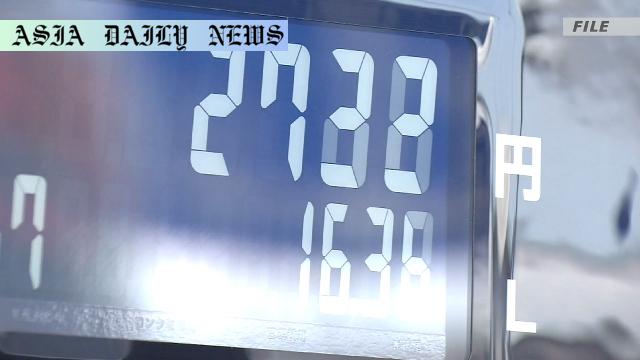Fuel subsidies – Japan announces short-term measures, including focused fuel subsidies, to shield citizens from potential price surges.
Japan’s government introduces temporary fuel subsidies to counter oil supply threats amid Israel-Iran tensions.
The support includes subsidies for gasoline, light oil, kerosene, and aviation fuel, valid from June 26 to approximately two months.
Fuel subsidies aim to stabilize gasoline prices at 175 yen per liter during periods of high demand in July and August.

Introduction to Japan’s Fuel Subsidy Program
Amid rising global tensions due to a potential Israel-Iran conflict affecting crude oil supply, Japan has announced a bold plan to shield citizens from economic disruptions. To ensure stability in fuel prices, the Japanese government will introduce a temporary fuel subsidy program. This initiative addresses concerns about potential spikes in fuel costs, particularly during peak summer demand. By focusing on maintaining affordable prices, the government emphasizes its commitment to balancing citizen welfare with economic pressures.
Structure and Scope of the Initiative
The subsidy program is strategically designed to support various fuels. Regular gasoline will be the primary focus, with pump prices capped at approximately 175 yen (1.2 dollars) per liter. Light oil will receive an equivalent level of support. Kerosene and heavy oil, essential for household and industrial purposes, will see subsidies at roughly half the gasoline rate. Furthermore, aviation fuel will receive targeted support at 40% of the gasoline subsidy. These measures cover a variety of economic activities, ensuring stability across sectors. Crucially, existing budget resources will fund the program, maintaining fiscal responsibility.
Timeline and Temporary Nature of the Subsidies
The initiative is set to commence on June 26 and last for about two months. This short-term measure aligns with the summer months of July and August, when fuel demand traditionally peaks. Industry Minister Muto Yoji reinforced the temporality of this program, emphasizing that it is not a long-term solution. Citing Japan’s decarbonization goals, the minister stressed the importance of balancing immediate economic relief with a sustainable future. This perspective highlights the government’s nuanced approach to addressing short-term crises while maintaining long-term environmental commitments.
Addressing Impact of Global Uncertainty
The potential supply disruption caused by tensions in the Middle East underlines global interdependencies in energy markets. Japan’s proactive approach preserves domestic stability while reducing vulnerability to external economic shocks. By increasing subsidies from an existing 10 yen per liter to a higher level during the program period, the government provides immediate support to households and businesses. These efforts aim to alleviate economic burdens, maintaining confidence amidst uncertain global conditions.
Long-Term Implications and Sustainability
While the fuel subsidy program addresses short-term challenges, it also raises broader questions about energy security and sustainability. Japan’s reliance on imported energy sources underscores the urgency of diversifying its energy portfolio. As the country transitions towards renewable energy and decarbonization, temporary measures such as these subsidies illustrate the challenges of aligning citizen welfare with environmental goals. The initiative also invites critical reflections on the feasibility of balancing immediate economic needs against long-term sustainability—a dynamic central to evolving global energy strategies.
Commentary
Proactive Measures Amid Global Uncertainty
Japan’s decision to introduce temporary fuel subsidies is a proactive response to a potential crisis. By acting swiftly, the government demonstrates awareness of the tangible and immediate impacts of global tensions on its citizens. The decision to limit price spikes during summer—a period of increased fuel demand—highlights the comprehensive planning behind this measure. It reflects a nuanced understanding of seasonal economic pressures and the interconnectedness of global oil supply chains.
Balancing Immediate Relief and Long-Term Goals
While the subsidies offer short-term economic alleviation, they also reflect the inherent tension between immediate relief and long-term environmental objectives. Minister Muto Yoji’s emphasis on the program’s temporary nature signals that Japan remains committed to its decarbonization goals. This balanced approach ensures that immediate measures do not overshadow the long-term vision of energy security, diversification, and sustainability. It is a fine balancing act that other nations may find instructive.
Global Lessons and Broader Implications
Japan’s fuel subsidy initiative offers valuable lessons on managing crisis-driven economic pressures while adhering to broader sustainability commitments. In an interconnected world, policies such as this serve as case studies for navigating the delicate intersection of global interdependence and domestic stability. By addressing immediate concerns without compromising long-term goals, Japan sets a commendable example of responsible governance amidst uncertainty.


